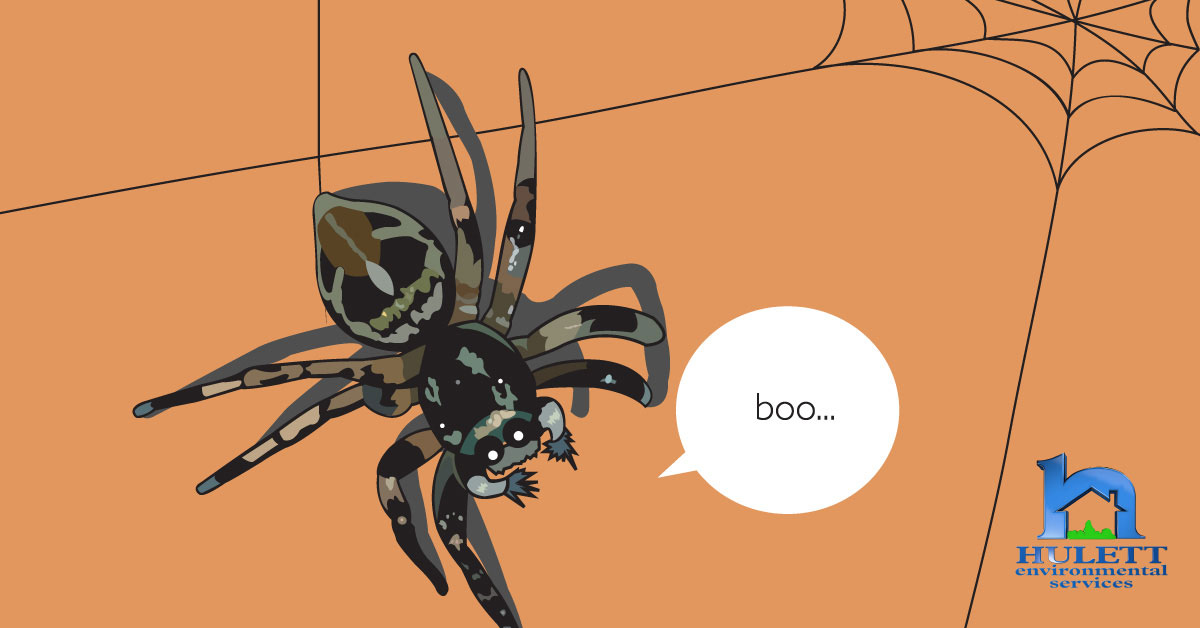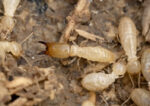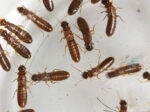
Do Spiders Get their Bad Reputation from Halloween?
Ever notice how spiders are everywhere in Halloween themes, from décor to candy and other All Hallows Eve festivities? Tons of wispy webs, strung up in doorways, sport eight-legged hairy, fanged fiends just waiting to ensnare victims in their wicked webs? From the itsy-bitsy spider to Little Miss Moffat sacrificing her breakfast due to a spider sighting, many humans possess an inordinate fear of these mostly harmless arachnids.
Halloween spreading fake news about spiders
Halloween doesn’t help dispel any of our fears about spiders. Some sources say that our fear of spiders is linked to spiders being associated, along with rats and cats, with witches, dating back to medieval times. Then there’s Hollywood, with films ranging from Arachnicide, Arachnophobia, Eight-Legged Freaks, Earth vs Spider and so on . . . where some nuclear event or natural disaster creates giant, mutant monster spiders.
Guilt by association: Spiders just hang with the wrong crowd in Halloween depictions
Also by association, creepy, crawly spiders and cobwebs feature predominantly in mummy, vampire and ghoul themes that take place in abandoned, haunted houses, dark lairs, murderous crypts, terrifying vaults and other deep dark Halloween locales. True, some spiders do prefer dark, undisturbed places to build webs but then again, some prefer the middle of your garden as a perfect place to set up shop. This Halloween, Hulett takes a closer look at our eight-legged friends, debunking some myths and old wives’ tales about spiders. Knowledge is power.
Myth: Spiders are aggressive and ready to attack people
The truth is, most spiders are very laid back, just hanging around their webs, waiting for prey to come to them; that’s why they spin webs. However, some spiders, such as wolf spiders do not spin webs but do hunt down their prey and pounce on it. Fortunately, humans are not on their menus, like we are on bedbugs’, ticks’, mosquitoes’ and other arthropods’ bills of who need a blood meal to survive. Most humans in the US who do encounter spiders that bite them have either disturbed these spiders or threatened them in some way.
Myth: All spider bites are venomous and dangerous
In North America, only two types of spiders pose significant physical threats to humans, the brown recluse spider and a variety of different hues of widow spiders, such as black, brown and red. Brown recluse bites can cause severe swelling and pain at the bite sight in addition to some other flu-like symptoms that may require immediate medical attention. Widow spiders can pack a powerful punch with their potent venom but rarely prove fatal, due to advances in antivenom therapy.
Myth: People swallow spiders in their sleep
Because spiders don’t usually hangout around sleeping humans, on purpose, at night or any other time, according to arachnologist, Catherine Scott, “The chances of having a spider on you are pretty low. Contrary to popular belief, spiders do not go into your bed at night to bite you or try to go into your mouth. That myth that you swallow spiders is totally false,” Scott says.
Myth: Killing spiders is bad luck
One myth that’s not that easy to quantify states that killing spiders, accidentally or otherwise, brings bad luck down on the head of the arachnid killer. This idea probably originated with different narratives concerning spiritual figures, such as David, who hid from King Saul in a cave, where a spider built a web across the entrance to deter soldiers from looking in the cave and a similar story involving Mohammed, where a tree sprouted in front of a cave entrance and a spider built a web to dissuade his enemies from searching for him inside the cave. Then there’s the myth that states that burning a spider will cause witches to visit you. Mark Twain has a little fun with this myth in his quintessential novel, Huckleberry Finn. Huck unwittingly swipes a spider off his shoulder directly into the flame of a lit candle. “Pretty soon a spider went crawling up my shoulder, and I flipped it off and it lit in the candle; and before I could budge it was all shriveled up. I didn’t need anybody to tell me that that was bad luck”.
Myth: Spiders are evil and bad
In many cultures, spiders are considered a mystical being due to their ability to spin webs. In Native American lore, female spiders play important roles as the co-creator of humankind and the bringer of light to the world. Spiders, on a more earthly, practical level help control mosquitoes, as well as ants and other insects that get snared in their webs. Some arachnids, such as scorpions, give birth to live young that they carry around on their backs until they can take care of themselves. If you can see tarantulas up close, which is difficult, as they’re shy and run away, they look kind of cuddly, like they are wearing velvet.
Just call Hulett!
In reality, most spiders are harmless and many are beneficial in controlling mosquitoes, flies and other potentially dangerous insects. However, if spiders are weaving webs into your South Florida home, most likely there’s a market for other household pests the spiders are interested in eating. With Hulett’s Healthy Home Program, our entomologist-trained technicians seal cracks, crevices and holes that invite household pests into your home. Along with excluding pests and correcting pest prone areas and conditions, our Integrated Pest Management (IPM) system utilizes quality products and methods, to create a pest-free barrier around your property. We guarantee you’ll be satisfied with our environmentally responsible approach to safeguarding your home and family. Spiders or other pests bugging you? Contact us to schedule a convenient, free pest inspection today. Just call Hulett!



